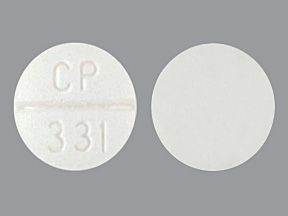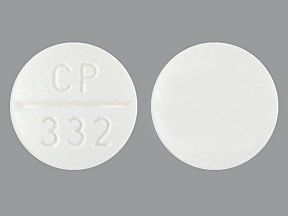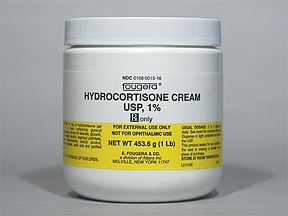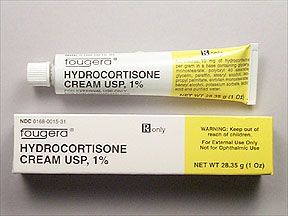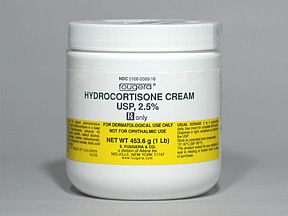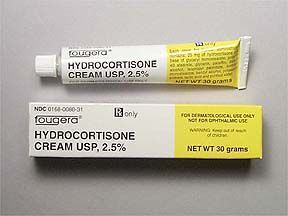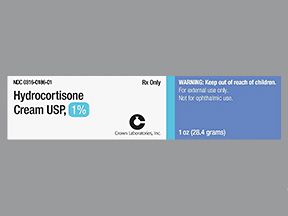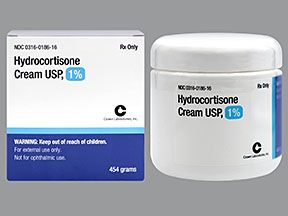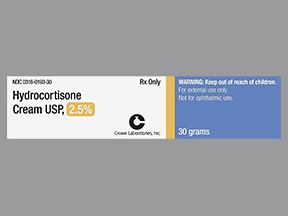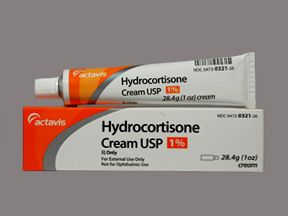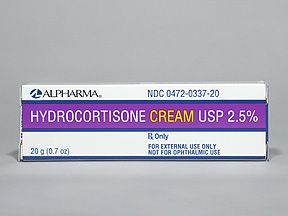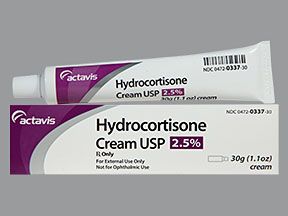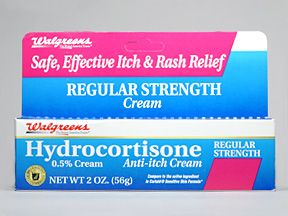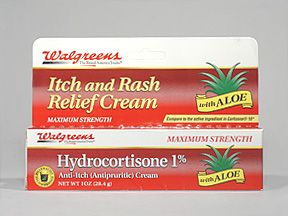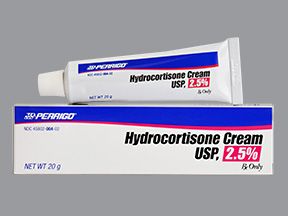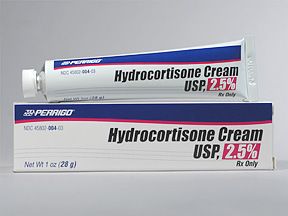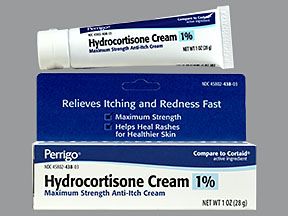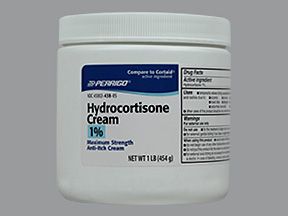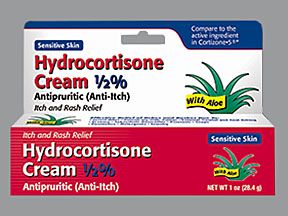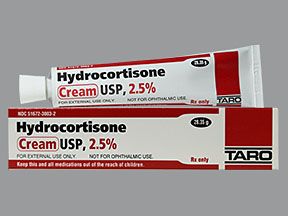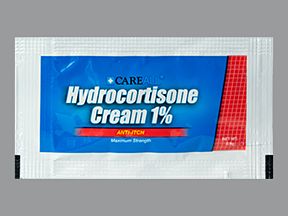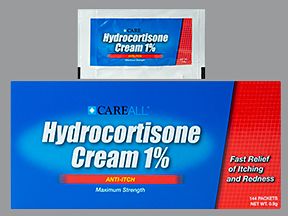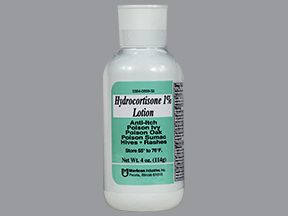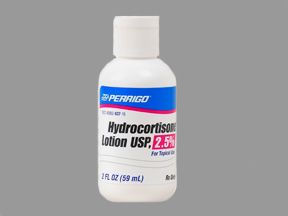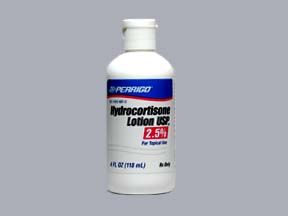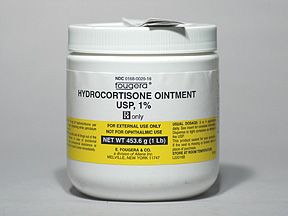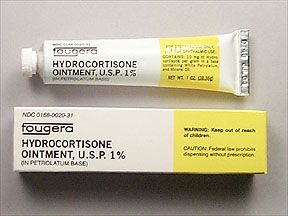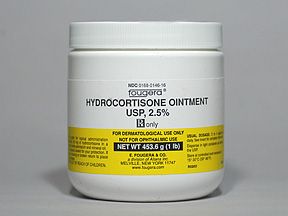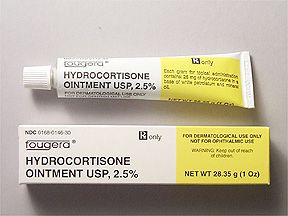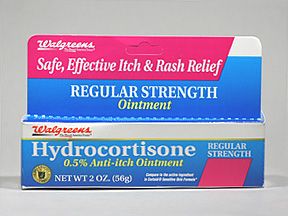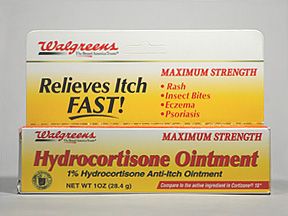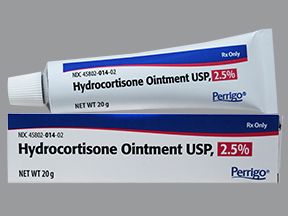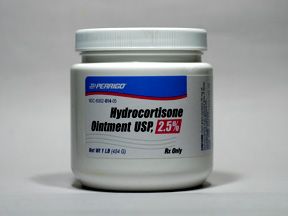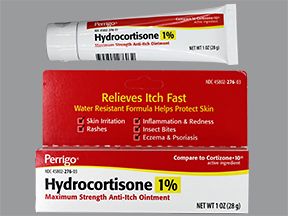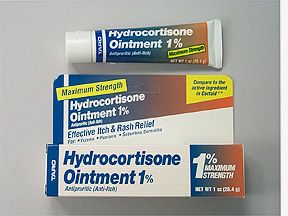- Hydrocortisone injection is available as a brand-name drug. Brand name: Solu-Cortef.
- Hydrocortisone comes in many forms, including an oral tablet and an injectable solution. The injectable version is only given in a healthcare setting, such as a hospital or doctor’s office or clinic.
- Hydrocortisone injection is used to treat many conditions. These include disorders of the skin, hormones, stomach, blood, nerves, eyes, kidneys, or lungs. They also include rheumatic disorders, allergic problems, certain cancers, or problems with the intestines such as ulcerative colitis.
- Increased risk of infection warning: Hydrocortisone injection increases your risk of getting infections. This is because it makes your immune system less able to fight infection. Your risk of infection increases as your dosage gets higher. Hydrocortisone injection may also mask signs of current infection.
- Live vaccines warning: If you take hydrocortisone injection long-term, you should not get any live vaccines. These include the nasal spray flu vaccine, chickenpox vaccine, and measles, mumps, and rubella vaccine. If you do get live vaccines, there is a risk that they might cause the infection they’re used to prevent. This is not a concern with short-term use of hydrocortisone injection. Also, if your immune system isn’t working well, the vaccine may not work as well.
- Adrenal insufficiency warning: If you stop taking this drug suddenly, your body may not be able to produce enough of a hormone called cortisol. This may cause a serious condition called adrenal insufficiency. Side effects can include very low blood pressure, nausea, vomiting, dizziness, or muscle weakness. They can also include feeling irritable or depressed, loss of appetite, or weight loss. If you notice these symptoms, call your doctor.
- Cushing syndrome warning: If you use this medication for a long time, it can increase the amount of a hormone called cortisol in your body. This can cause a serious condition called Cushing syndrome. Symptoms can include weight gain, fat deposits in your body (especially around your upper back and stomach area), or slow healing of cuts or infections. They can also include feeling anxious, irritable, or depressed, roundness of your face (moon face), or high blood pressure. If you notice these symptoms, call your doctor.
Hydrocortisone is a prescription drug. It comes in many forms, including by intravenous (IV) and intramuscular (IM) injection. The intravenous and injectable forms are only given by a healthcare provider.
Hydrocortisone injection is available as the brand-name drug Solu-Cortef.
Hydrocortisone injection may be used as part of a combination therapy. This means you may need to take it with other medications depending on the condition being treated.
Why it’s used
Hydrocortisone injection is used to treat many conditions. These include disorders of the skin, hormones, stomach, blood, nerves, eyes, kidneys, or lungs. They also include rheumatic disorders, allergic problems, certain cancers, or problems with the intestines such as ulcerative colitis.
How it works
Hydrocortisone injection belongs to a class of drugs called glucocorticoids, or steroid hormones. A class of drugs is a group of medications that work in a similar way. These drugs are often used to treat similar conditions.
Hydrocortisone injection works by reducing inflammation (irritation and swelling) in the body.
Hydrocortisone injectable solution doesn’t cause drowsiness, but it can cause other side effects.
More common side effects
The more common side effects of hydrocortisone injection can include:
- headache
- increased sweating
- trouble sleeping
- unusual hair growth on your face or body
- upset stomach
- increased appetite
- nausea
- weight gain
- skin changes, such as:
- acne
- rash
- dryness and scaliness
- injection site reactions, such as skin that is:
- tender or sore to the touch
- red
- swollen
- small skin depressions (indentations) at the injection site
If these effects are mild, they may go away within a few days or a couple of weeks. If they’re more severe or don’t go away, talk to your doctor or pharmacist.
Serious side effects
Call your doctor right away if you have serious side effects. Call 911 if your symptoms feel life-threatening or if you think you’re having a medical emergency. Serious side effects and their symptoms can include the following:
- Adrenal insufficiency. Symptoms can include:
- tiredness that gets worse and doesn’t go away
- nausea or vomiting
- dizziness
- fainting
- muscle weakness
- feeling irritable
- depression
- loss of appetite
- weight loss
- Cushing syndrome. Symptoms can include:
- weight gain, especially around your upper back and stomach area
- slow healing of wounds, cuts, insect bites, or infections
- tiredness and muscle weakness
- feeling depressed, anxious, or irritable
- roundness of your face (moon face)
- new or worsened high blood pressure
- Infection. Symptoms can include:
- fever
- sore throat
- sneezing
- cough
- wounds that won’t heal
- pain when urinating
- Mental changes. Symptoms can include:
- depression
- mood swings
- Stomach problems. Symptoms can include:
- vomiting
- severe stomach pain
- Changes in vision. Symptoms can include:
- cloudy or blurred vision
- seeing halos around lights
- Pain in your hips, back, ribs, arms, shoulders, or legs
- High blood sugar. Symptoms can include:
- passing urine more often than usual
- increased thirst
- feeling hungrier than normal
- Unusual weakness or tiredness
- Swelling of your feet or lower legs
- Seizures
- Increased blood pressure
Disclaimer: Our goal is to provide you with the most relevant and current information. However, because drugs affect each person differently, we cannot guarantee that this information includes all possible side effects. This information is not a substitute for medical advice. Always discuss possible side effects with a healthcare provider who knows your medical history.
Hydrocortisone injection can interact with other medications, herbs, or vitamins you might be taking. An interaction is when a substance changes the way a drug works. This can be harmful or prevent the drug from working well. Your healthcare provider will look out for interactions with your current medications. Always be sure to tell your doctor about all medications, herbs, or vitamins you’re taking.
Disclaimer: Our goal is to provide you with the most relevant and current information. However, because drugs interact differently in each person, we cannot guarantee that this information includes all possible interactions. This information is not a substitute for medical advice. Always speak with your healthcare provider about possible interactions with all prescription drugs, vitamins, herbs and supplements, and over-the-counter drugs that you are taking.
This drug comes with several warnings.
Allergy warning
Hydrocortisone injection can cause a severe allergic reaction. Symptoms can include:
- trouble breathing
- swelling of your face, lips, throat, or tongue
- skin rash
- itching
- hives
If you have these side effects during treatment, your doctor will stop giving you this medication. If you have them after you leave the facility, call 911 or go to the nearest emergency room.
Don’t take this drug again if you’ve ever had an allergic reaction to it. Taking it again could be fatal (cause death).
Measles and chickenpox warning
Tell your doctor if you’ve been around someone who has measles or chickenpox. Hydrocortisone injection makes your immune system less able to fight these infections. If you get measles or chickenpox, tell your doctor right away. You could develop a severe case that could be fatal (cause death).
Warnings for people with certain health conditions
For people with infections: Hydrocortisone injection can mask (cover up) symptoms of infection. It can also make it harder for your body to fight an infection. Talk with your doctor about whether this drug is safe for you.
For people with high blood pressures: Hydrocortisone injection can raise your blood pressure. If you have high blood pressure or heart problems, talk with your doctor about whether this drug is safe for you. You should monitor your blood pressure more closely while you’re taking this medication.
For people with diabetes: Hydrocortisone injection can increase your blood sugar levels. You should monitor your blood sugar levels more closely while you’re taking this medication.
For people with glaucoma: Hydrocortisone injection can increase the pressure in your eyes. This can make your glaucoma worse. Your doctor may check your eyes often if you take this medication.
For people with stomach or intestinal problems: Hydrocortisone injection can irritate your stomach or intestines. This can worsen any stomach or intestinal problems. It can also create holes in your stomach or intestines. Don’t take hydrocortisone injection if you currently have certain gastrointestinal issues, or have a history of them. These include stomach ulcers, diverticulitis, or ulcers (sores) in the digestive tract. Also avoid this drug if you’ve ever had surgery on your stomach or intestines.
For people with thyroid problems: Thyroid hormones can change how hydrocortisone is processed and removed from your body. If you have changes in your thyroid hormone levels, your doctor may need to change your dosage of hydrocortisone.
For people with mental illness: Hydrocortisone injection can worsen certain types of mental health problems and their symptoms. These include mood changes, personality changes, depression, or hallucinations (seeing or hearing things that aren’t real). Your doctor may need to change your dosage of any mental health medications you take.
For people with congestive heart failure: Hydrocortisone injection makes your body retain (hold onto) water and salt. This can make heart failure worse. While taking this drug, your doctor may suggest that you follow a low-salt diet. They may also change the dosage of your heart medication.
For people with Cushing syndrome: People with this condition already have too much steroid hormone in their body. Hydrocortisone injection is a steroid hormone, so using this drug can worsen symptoms of Cushing syndrome.
For people with ocular herpes simplex: Talk with your doctor about whether this drug is safe for you. It raises your risk of perforation (puncture) or small holes in your cornea (the outer layer of the eye).
Warnings for other groups
For pregnant women: There is not enough information on the use of hydrocortisone in pregnant women to determine the risk. However, research in animals has shown negative effects to the fetus when the mother takes the drug.
Tell your doctor if you’re pregnant or plan to become pregnant. Hydrocortisone should be used during pregnancy only if the potential benefit justifies the potential risk.
If you become pregnant while taking this drug, call your doctor right away.
For women who are breastfeeding: Hydrocortisone may pass through breast milk. It can slow the child’s growth and cause other side effects. Tell your doctor if you’re breastfeeding. You may need to decide whether to stop breastfeeding or stop taking hydrocortisone.
For seniors: Older adults may process drugs more slowly. A normal adult dosage may cause levels of this drug to be higher than normal. If you’re a senior, your doctor may start your hydrocortisone injection dosage on the low end of the dosing range.
For children: Hydrocortisone injection can delay growth and development in children and infants. If your child takes this medication, your doctor will monitor their height and weight.
Your doctor will determine a dosage that’s right for you based on your individual needs. Your general health may affect your dosage. Tell your doctor about all health conditions you have before your healthcare provider administers the drug to you.
Disclaimer: Our goal is to provide you with the most relevant and current information. However, because drugs affect each person differently, we cannot guarantee that this list includes all possible dosages. This information is not a substitute for medical advice. Always speak with your doctor or pharmacist about dosages that are right for you.
Hydrocortisone injection is used for short-term or long-term treatment. The length of treatment depends on the condition being treated.
This drug comes with risks if you don’t receive it as prescribed.
If you stop receiving the drug suddenly or don’t receive it at all: If you’ve been on hydrocortisone injection for long-term therapy and suddenly stop receiving it, you may have withdrawal reactions. These can include changes in the hormone levels in your body. These changes can cause serious conditions called adrenal insufficiency or Cushing syndrome. If you don’t receive this drug at all, your condition won’t be treated and may get worse.
If you miss doses or don’t receive the drug on schedule: Your medication may not work as well or may stop working completely. For this drug to work well, a certain amount needs to be in your body at all times.
What to do if you miss a dose: Call your doctor right away to set up another appointment.
How to tell if the drug is working: You should have a decrease in symptoms of your illness.
Keep these considerations in mind if your doctor prescribes hydrocortisone injection for you.
General
- For low doses, hydrocortisone injection is given over a period of 30 seconds. For high doses, it can take up to 10 minutes.
- You may need a friend or loved one to drive you home after your hydrocortisone injection. This depends on the condition you have that’s being treated.
Clinical monitoring
You and your doctor should monitor certain health issues. This can help make sure you stay safe while you take this drug. These issues include:
- Hormone and blood sugar levels: If you’re on hydrocortisone injection for long-term therapy, your doctor will do blood tests. These will help make sure your levels of certain hormones and blood sugar stay in a normal range.
- Vision: If you’re on hydrocortisone injection for more than six weeks, you should have an eye exam. During this exam, your doctor will check your eye pressure.
- Growth in children: During treatment with hydrocortisone injection, children should have their growth monitored.
Your diet
Hydrocortisone injection can cause you to retain (hold onto) salt and water. It can also change how your body handles carbohydrates and proteins, and increase the loss of the mineral potassium from your body
During your treatment with this drug, your doctor may advise you to:
- limit the amount of salt and carbohydrates you eat
- take potassium supplements
- eat a high-protein diet
Talk to your doctor or pharmacist before making any major changes in your diet.
There are other drugs available to treat your condition. Some may be better suited for you than others. Talk to your doctor about other drug options that may work for you.
Disclaimer: Healthline has made every effort to make certain that all information is factually correct, comprehensive, and up-to-date. However, this article should not be used as a substitute for the knowledge and expertise of a licensed healthcare professional. You should always consult your doctor or other healthcare professional before taking any medication. The drug information contained herein is subject to change and is not intended to cover all possible uses, directions, precautions, warnings, drug interactions, allergic reactions, or adverse effects. The absence of warnings or other information for a given drug does not indicate that the drug or drug combination is safe, effective, or appropriate for all patients or all specific uses.

